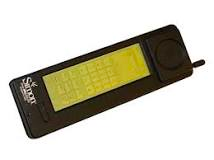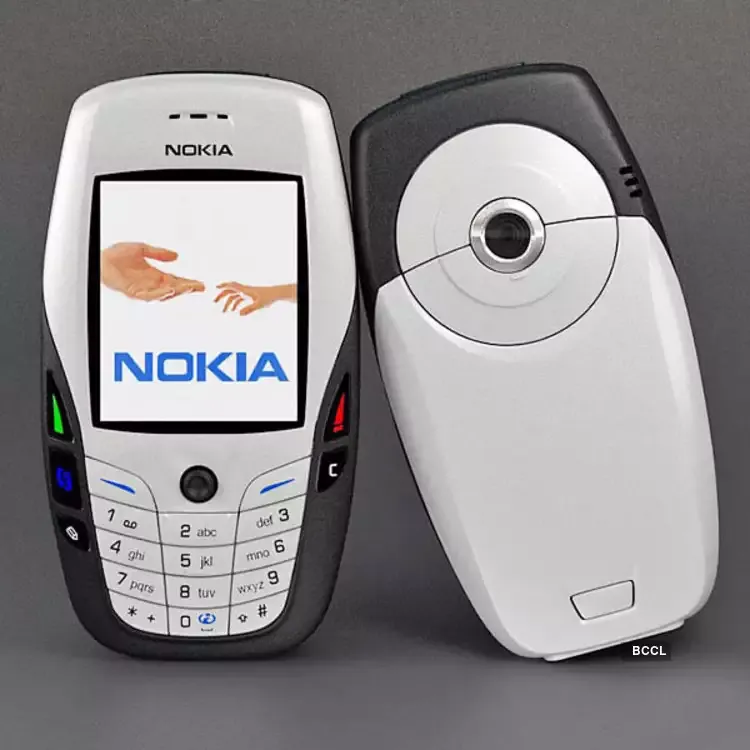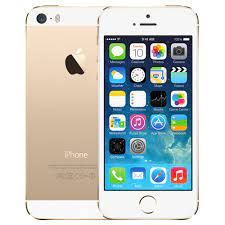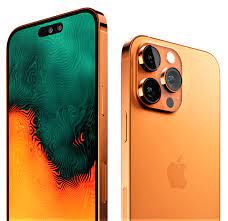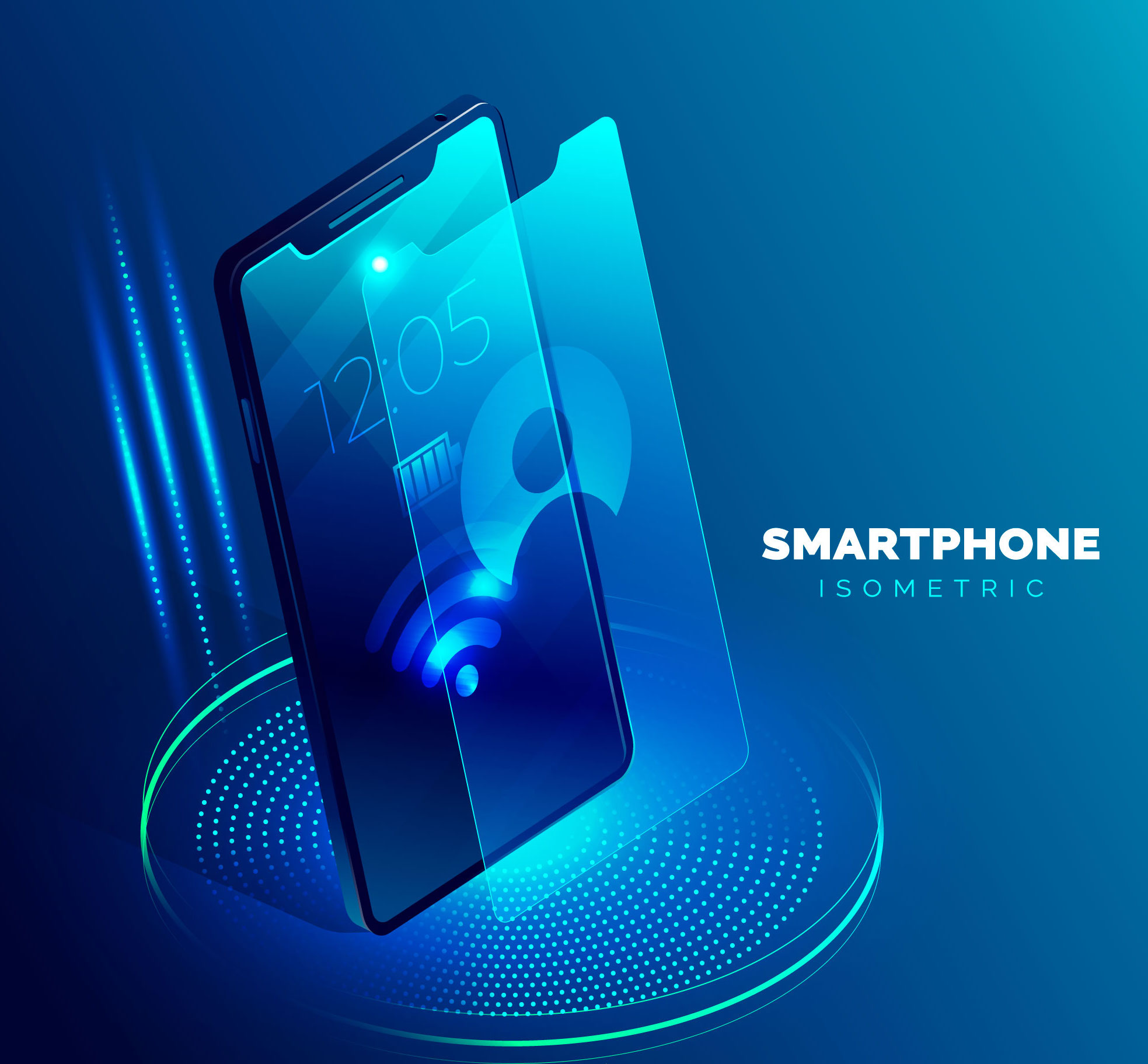
The Future of Smartphones
Introduction
In the last decade, smartphones have become an integral part of our lives. From revolutionizing communication to becoming our go-to device for almost everything, smartphones have indeed come a long way. But have they reached their peak? Or is there something else on the horizon that could potentially replace them? Let's delve into this fascinating topic.
The Current State of Smartphones
Smartphones have undergone a remarkable transformation over the years. Their design, functionality, and size have evolved significantly, making them more than just a device for calling and texting. Today, smartphones are a fundamental part of the human experience, with nearly 70% of the global population owning one. They have surpassed the capabilities of fictional devices like the Star Trek Communicator that we have seen on TV in our childhood. Now your everyday life is in your smartphone.
Smartphones had almost three decades of journey. IBM introduced the first smartphone Simon in 1994.
How much did they change in last 10 years? In 2013 apple launched iPhone 5s, and now in 2023 we have iPhone 14 and iPhone 15. I still have iPhone 5s which my dad used to use. So in last 10 years there was no fundamental shift in smartphone technologies. But if you look at 10 years before that there were major changes. Compare iPhone 5s of 2013 with Nokia’s 6600 of 2003, huge difference. The major shift happened in 2007 by Steve Jobs. Nonetheless I think next 10 years we will see fundamental changes, specially with inclusion of AI hardware and software. If you haven’t noticed, Apple and Google are prepping their smartphones with AI capabilities.
Over the years, as smartphones evolved, we have seen better processors, memory, display, apps and user experience but one thing is still missing, a significantly better battery life. Charging your smartphone everyday is a pain that nobody could solve so far. I think this requires fundamental change of battery technology similar to fuel engines to electric.
iPhone 15 - lack of innovation? or not?
Internet is filled with mockery of iPhone 15 announcements as there are insignificant difference from iPhone 14 to iPhone 15. People don’t realize that Apple has been secretly working on AI (although they don’t call it AI, they call it machine learning) and they are not at all lagging behind the AI race. I think with their new iPhone, they are preparing for their next surprise - AI assistant. Ok so Siri is there, so what’s new? Well unlike others Apple’s focus is more on multimodal LLMs like voice rather than text LLMs. So Siri will be able to do amazing things, which you thought never possible in near future.
The reason I am saying this is because of their addition of neural engine and GPUs in iPhone 15 (A17 Bionic chip with a 6-core GPU) and apple watch (New S9 SiP chip with a faster GPU). Even they have changed the silent switch button to a customizable action button, I think this is done for Siri in future. Another objective is probably capturing 3D virtual objects from real world objects for their AR applications. A powerful GPU can ensure that these objects are displayed smoothly and realistically. Soon you will see users capturing 3D objects from their camera. iPhone 15 cameras are designed for capturing depth, so you will not need to turn on portrait mode, from regular photo you can turn it into portrait image.
So where are the smartphones heading?
I think the major shift will be in personal assistant space. Given the trend of device hardwares coming out, it seems like in near future we will have personalized and localized AI in our devices. This AI assistant can learn from you and improve itself but the learning will be localized in your device. Imagine a chatGPT powered with voice that understands your language and helps you out in such a way that it will feel like it knows you. I am going to write a separate article about why I think personalised AI assistant is the future.
Regarding tangible changes, foldable and rollable displays are already on the market, offering users larger screen sizes without compromising portability. These could become more mainstream as the technology matures.
Fast charging is also coming. Battery will mature over time, there are a few potential candidates:
Solid-state batteries: Solid-state batteries use a solid electrolyte instead of a liquid electrolyte, which makes them safer and more energy-dense than traditional lithium-ion batteries.
Lithium-air batteries: Lithium-air batteries have the highest theoretical energy density of any battery technology, which means that they could potentially provide smartphones with weeks or even months of battery life on a single charge.
Graphene batteries: Graphene batteries use graphene, a lightweight and flexible material, as an electrode material. Graphene batteries have the potential to be thinner, lighter, and more energy-dense than traditional lithium-ion batteries.
The rollout of 5G is set to revolutionize data speeds and connectivity, opening the door for more advanced applications and services that were previously not possible. AR and VR technologies are expected to integrate more seamlessly with smartphones, offering new ways to interact with the digital world. This could range from enhanced gaming experiences to practical applications like virtual shopping or remote work. As wearable technology and the Internet of Things (IoT) continue to grow, smartphones could serve as the central hub for controlling various devices, from smart home appliances to health monitors.
Some experts argue that smartphones have reached their peak in terms of design and functionality. With incremental hardware improvements and software updates, there's a growing sentiment that smartphones may soon give way to other forms of technology. I am going to talk about that next.
The Growing Backlash on scream time (Sorry, screen time)
Do you control your smartphone or your smartphone controls you? In a social event I see people looking at the screen instead of interacting with each other, its pretty common now a days. Your kids annoying you? give them your smartphone and they will stay calm. In a time of tiktoks, reels, shorts, mobile games and social networks, it is increasingly difficult to focus on anything. Deep thinking is going out of the window.
As much as we love our smartphones, there's a growing sentiment against the addiction they foster. People are increasingly seeking devices that offer the benefits of a smartphone without the constant distractions. The desire to live in the moment and connect with others without being glued to a screen is becoming more prevalent.
The Future: What Lies Ahead beyond smartphones?
Augmented Reality, Mixed Reality, Spatial Computing (Same sh*t)
Imagine a world where your computing experience is not confined to a screen but is three-dimensional and interactive. This is what spatial computing aims to achieve. It's like having a transparent phone that allows you to interact with digital elements in the real world. Apple’s Vision Pro or Meta’s Quest Pro are early stages of that idea. Yea, they are good for entertainment, but how do they make it integral part of daily life? how do they make it affordable? Can they change behaviour of people how they interact with real world? Will people feel comfortable wearing a headset? are the hardwares ready for such immersive experiences? Can they bring the developers community to build on them? Lot’s of questions need to be answered and proven before mass adoption.
I think over time these devices will get cheaper and apart from entertainment people will use it for specific tasks. For example, instead of working on a smartphone small screen, you will use them to have a bigger screen to work with, so basically you buy a bigger display. To me the future of headsets will be like Bruce Willis movie Surrogates (2009) where you can interact with real world with surrogate robots.
Smart Glasses and AI Assistants
The concept of smart glasses equipped with AI assistants that anticipate your needs is another exciting development. This could be the next big shift in how we interface with technology, making it more intuitive and less intrusive. Instead of carrying a smartphone, you just put your smart glasses on. Google tried it long back but the technology wasn’t mature then. Meta also has one, but in early stage. There are some privacy concerns as well since a camera is always staring at you. But this could come back as microchips getting more micro.
Hu.ma.ne Technology
Companies like Hu.ma.ne are working towards making devices invisible, aiming to eliminate screens altogether. They consider screens as barriers between people and the world, and their goal is to remove these barriers to enhance human interaction. They are coming up with body-worn device with a laser projector, they call it Humane AI pin. With gestures, tap voice and AI assistant, you can do amazing stuff. They are supposed to launch this year, so watch out.
Brain-Computer Interfaces (BCIs)
Even more futuristic are brain-computer interfaces, which would allow for direct communication between the human brain and computers. Companies like Elon Musk’s Neuralink are pioneering this field, aiming to create high-bandwidth interfaces capable of not just reading from, but also writing to, the brain. This could enable everything from telepathic communication to enhanced memory and cognitive abilities.
Other Wearables and Implants
Apart from smart glasses and BCIs, other wearables like smartwatches, fitness trackers, and even smart clothing could take over some of the functions currently performed by smartphones. Implantable devices, like those for medical monitoring, could also become more advanced, offering functionalities that we currently associate with smartphones. With projection display may be even earphones can become your smartphone competition.
Holographic Devices
One of the most promising breakthroughs is the development of metamaterials. Metamaterials are artificial materials that can manipulate light in ways that are not possible with natural materials. Researchers have used metamaterials to create holograms that are more realistic and efficient than previous holograms. Another breakthrough is the development of new laser technologies. New laser technologies have made it possible to create smaller and more powerful laser projectors. However, there are still some challenges that need to be overcome before holographic devices can replace smartphones like holographic devices require a lot of processing power to generate holograms and they can be expensive to manufacture.
So what’s in it for Bangladesh?
We are historically late adopters. When new technology will be widespread, we will also use them. Recently smartphone adoption has slowed down in Bangladesh. Here still feature phones are popular within certain class of people. This is mainly because of usability, cost of device and battery life. But I think this will change over time as cost of basic features usage such as voice and video calls over internet are getting cheaper and more reliable. Factors such as young generation’s preference for smartphones and large scale decline of production of feature phone will also contribute to adopting more smartphones.
Locally manufactured and assembled smartphone production will also be a factor in smartphone adoption. They should assemble more high end phones here in Bangladesh so that they are available in a reasonable price. It is important to have backward industries in Bangladesh for these devices. Government can encourage businesses to set up chip, motherboard and accessories plants in Bangladesh.
Bangladeshi tech companies and developers can work on the AR/VR/Spacial computing space and wearable technologies. We can’t do much in hardware innovation in this space but we can do software innovation. We can create software/apps that can take advantage of 5G.
Conclusion
While smartphones have revolutionized our lives in many ways, it's worth pondering whether they have reached their zenith. With emerging technologies like AR, spatial computing, and smart glasses, BCIs, the future looks promising and full of possibilities. Perhaps the next big thing is just around the corner, waiting to change the way we interact with the world once again.
If you are old fashioned like me, you would miss the days when we used to experience the life directly without the mediation of a phone screen. Sometimes I wish there was a resort or something, where people are banned from any technology and would interact the old fashioned way. Who knows, that can become a reality. Sounds like contradicting the article?
Questions or comments: tashfin@kotha.app, tashfind at X

